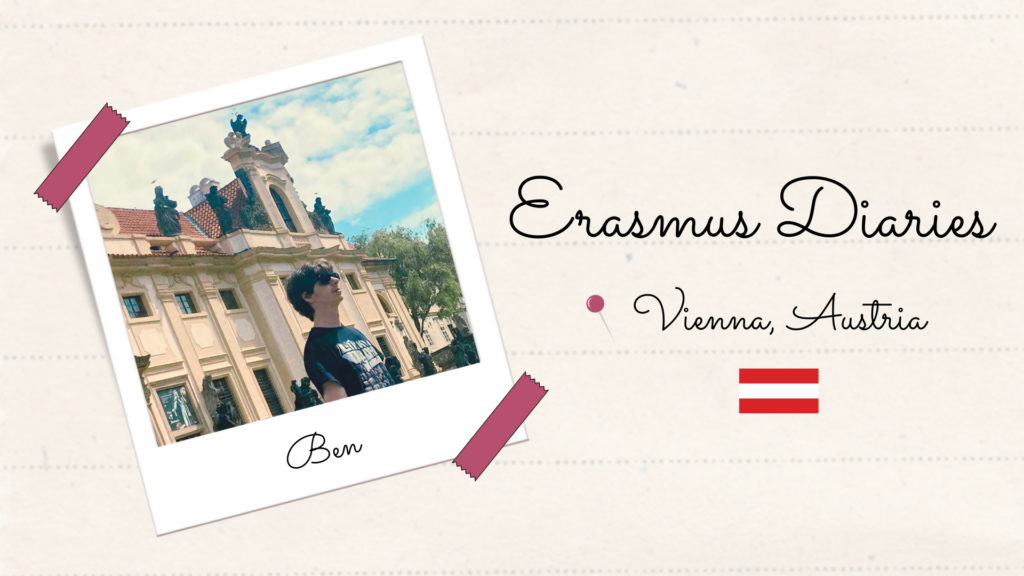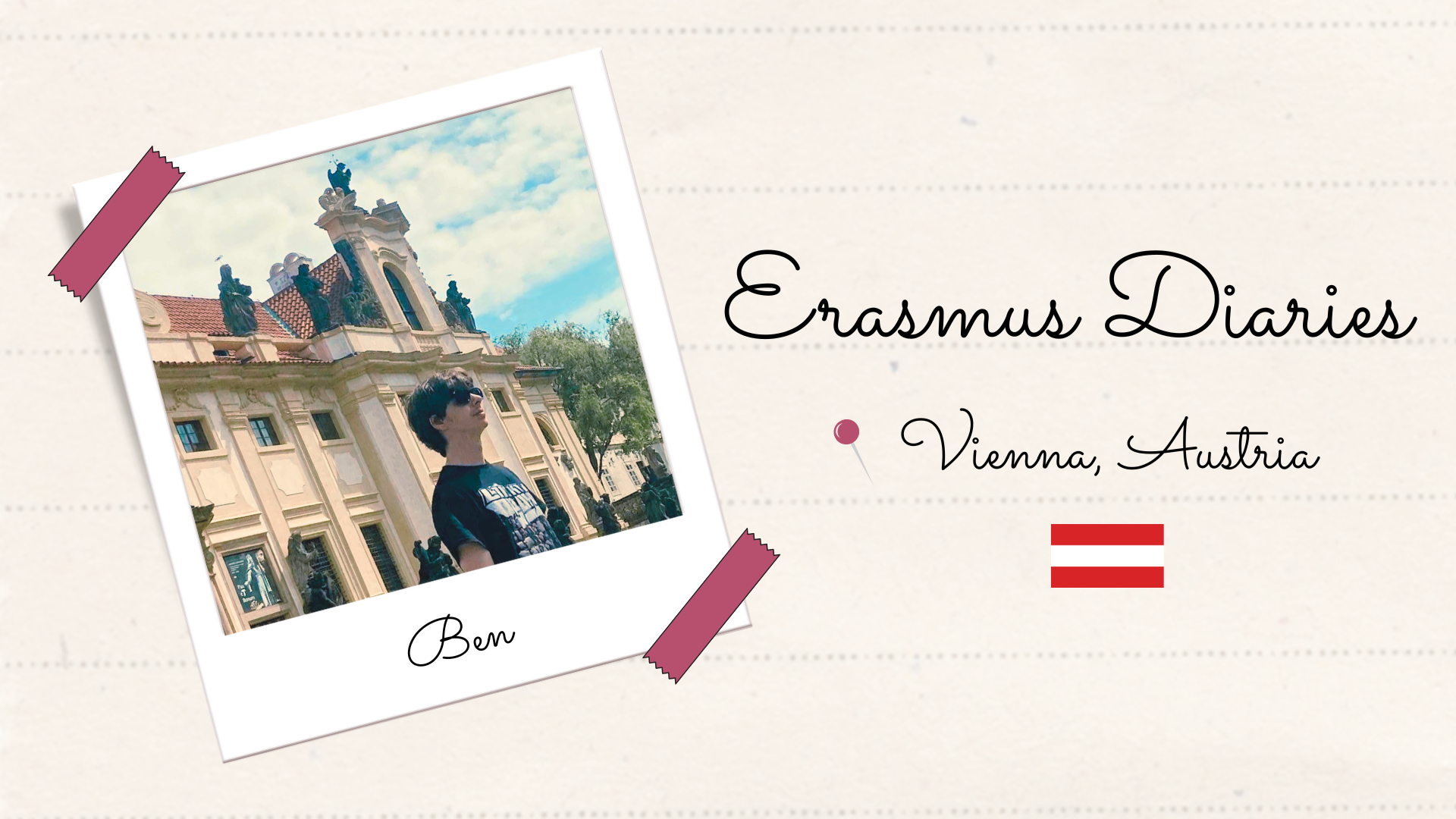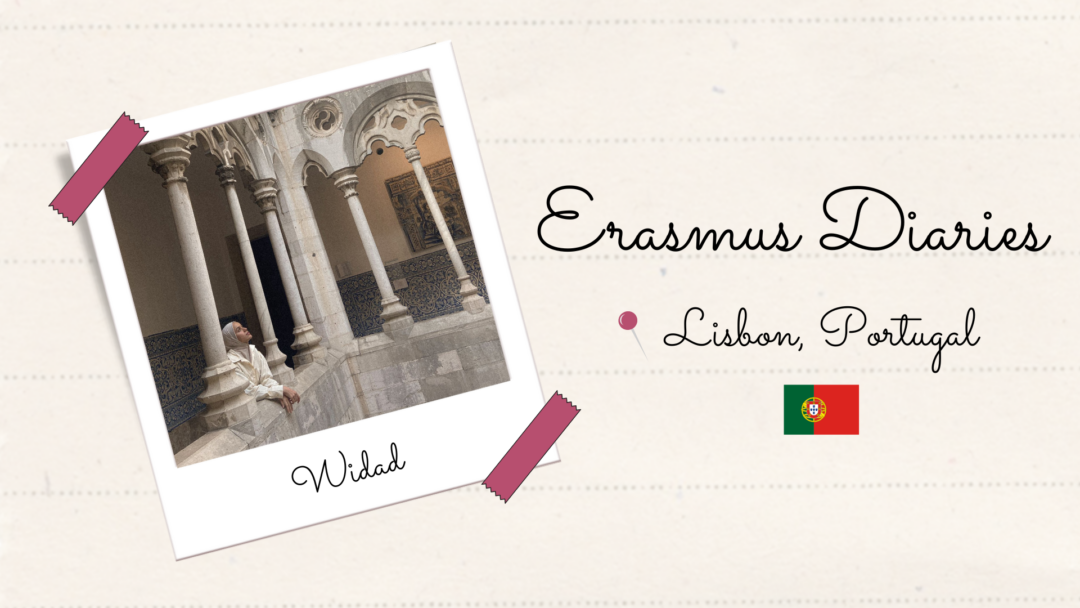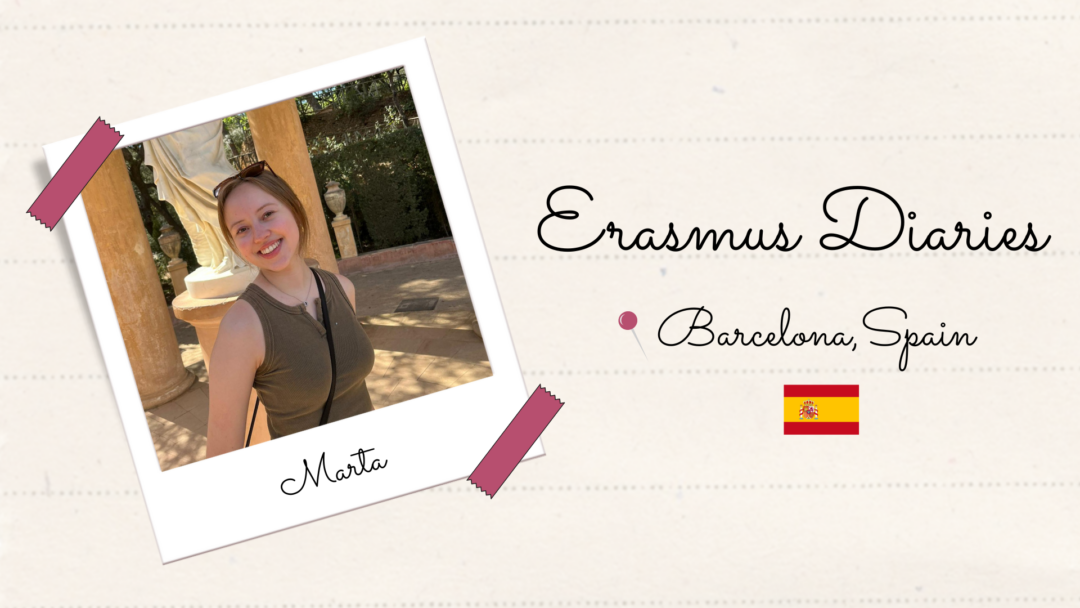Ben’s Erasmus experience at FH Wien, in Vienna, Austria

Today, we’re featuring Ben, an ICM student from the Netherlands, who had an incredible semester in Vienna, Austria at FH Wien University of Applied Sciences. Check out his story to see what he experienced and learned during his time abroad!
- What was your first impression of the host country and its culture?
I must say that I didn’t really feel a big shock arriving in Vienna. The only obvious point is obviously the language barrier: they speak German here and aren’t very keen on speaking anything else. I also quickly found out that Austrians like to keep to themselves, they seem quite hostile whenever you try to make conversation with them. Speaking German helps, but they’d still prefer for you both to go your own separate ways without communicating. My classmates found this very difficult because they consider Austrians to be rude and disrespectful, but I think they’re not open enough to different cultures.
- Can you share a memorable cultural experience you had during your Erasmus stay?
A cultural memory I have from Erasmus is walking down the Kahlenberg (small mountain overlooking Vienna) and walking into a small village where they serve wine from the vineyards of Kahlenberg, along with traditional German food, while some musicians were playing the accordion and guitar.
- How was the academic environment at your host university different from Thomas More?
The biggest difference between FH Wien and Thomas More was definitely the way of teaching. I always had criticism about Thomas More’s classes, until I came to Vienna. Here in Vienna, the power distance between students and teachers is very big. The teacher enters the class, goes through their slides, gives an assignment and leaves. These classes can take up to five hours, with a short break in between. I much rather sit in Thomas More’s classes with an interactive teacher who we should call by their first name.
- What challenges did you face while on Erasmus, and how did you overcome them?
The biggest challenges I faced were mostly keeping myself entertained, getting out of my shell and meeting new people, and being all alone, meaning there was nobody to help me with anything outside my contacts on my phone. I quickly solved the entertainment problem by finding more enjoyment in the little things in life, and living more “primitively” compared to my life in Mechelen. Meeting new people never got easier, but the more people you meet, the less you’ll be looking to meet new people, meaning I didn’t have to force myself to go out and meet people anymore. Being all alone was helpful for me because I taught myself how to be in my head more, and staying sane not talking to people I know for an extended time.
- How did this experience help you grow personally and academically?
Academically, I didn’t get much out of this experience. However, I learned a lot about myself, and also how to be a better person. I learned to be myself more, without adapting to what others expect me to be, even if that means being different from others and having different hobbies and things I like than them. I am also starting to learn how to appreciate and love myself. Before coming here, I had never thought of loving myself and being proud of who I am, but since I talked about it with people, I started to get more confident as I appreciate myself more than before.
- Looking back, what is your most cherished memory from your Erasmus experience?
My favourite memory has to be going to Croatia with the people I met here. The occasion was someone’s birthday, and he invited nine other people into a mansion at the coast of Split, in Croatia. Although I had to leave earlier, the rest stayed for a total of four days there. It was so special to me because it was the first time where I felt like an adult, going on holiday with people I barely knew but felt like I had been friends with forever. Although it was short, it’s definitely my fondest memory from my Erasmus experience.
- What will you miss the most in Belgium after your Erasmus experience?
The thing I will miss most about Vienna when I’m back in Belgium is everything. How safe the city feels, how big it is, yet so small because of the amazing transport, the beautiful parks, the variety of things to do, the nice architecture, etc etc. I think Belgium compares in no way to Austria and the best Belgian city will never get close to what Vienna has to offer. Not many things are perfect, but I feel like Vienna is the closest a city will ever become to perfection. No wonder it has been declared the most livable city in Europe multiple years in a row because it feels like it is. The best part is that I picked Vienna at random, because I simply wanted to go on Erasmus to a German-speaking country, and accidentally ended up in the best possible option.
- Do you have any tips or advice for future students considering Erasmus?
As for tips for students who are either considering going on Erasmus or are already planning on doing so and are expecting similar positive experiences as me, there are a few things you need to ask yourself:
Are you ready to be away from home for long periods of time?
Are you ready to let go of all of your safe environments at home?
Are you ready to go to a place where you know nobody at all and have no friends?
Are you ready to experience a new culture? AND adapt to it?
Are you ready to open yourself to an experience you’ve never felt before?
Are you ready to completely drop your comfort zone and redefine who you are?
If you answered “no” to at least one of these questions, you should really reconsider if it’s the best option for you to go on Erasmus. I’ve seen countless people who suffer from homesickness, stick to the people who only speak their language and similar situations. Sure, these people will look at their Erasmus experience fondly as well, but it’s not the same as those who go to Erasmus to see a new side of themselves, other people, and the world in general. And wherever you do, don’t stay rotting in your dorm room. Go meet people, go to a park, go to a museum, do whatever, as long as it’s something you couldn’t do at home. Make every day count like it’s your last because it only lasts six months.


